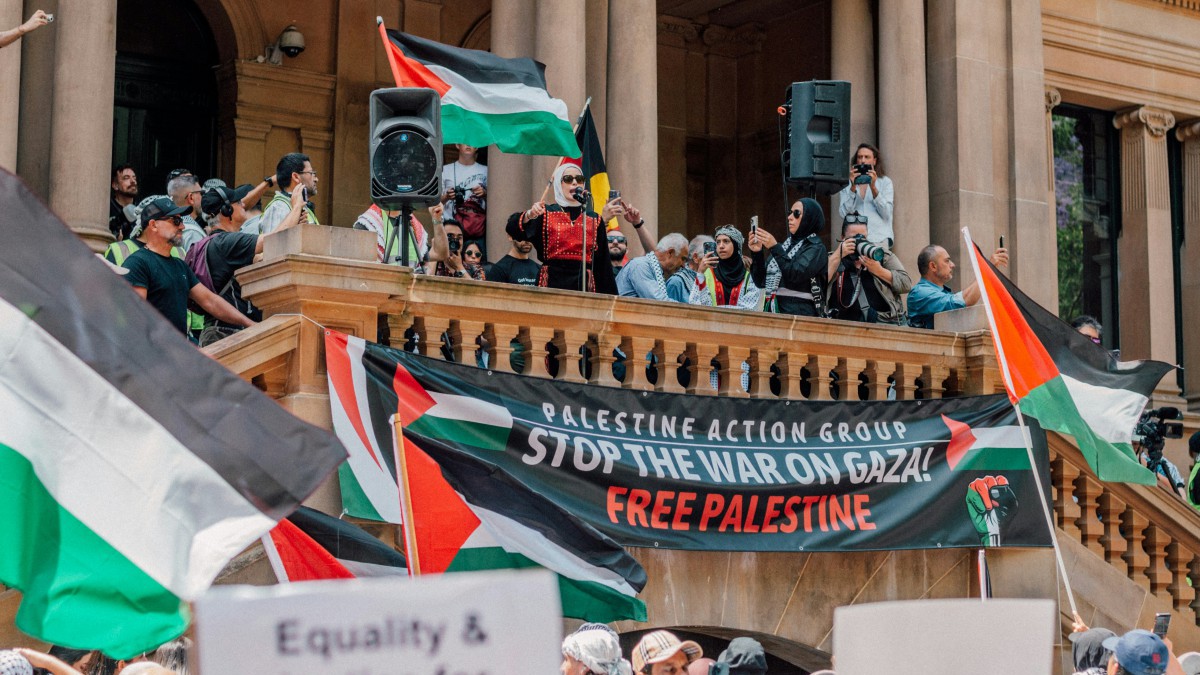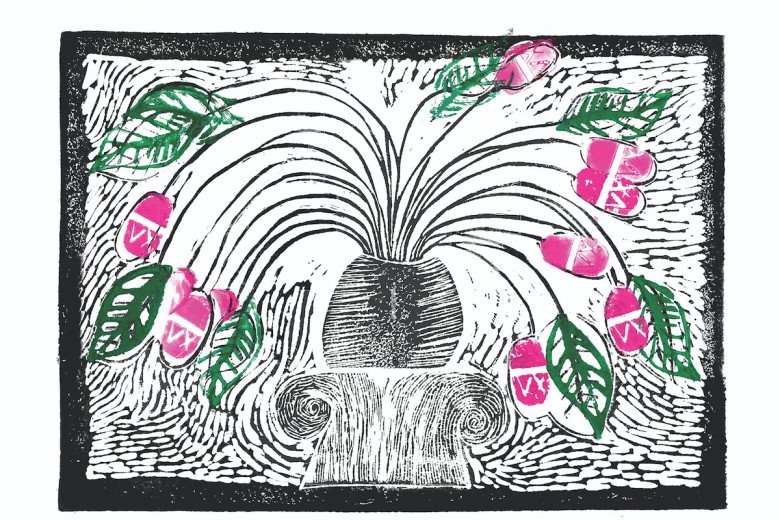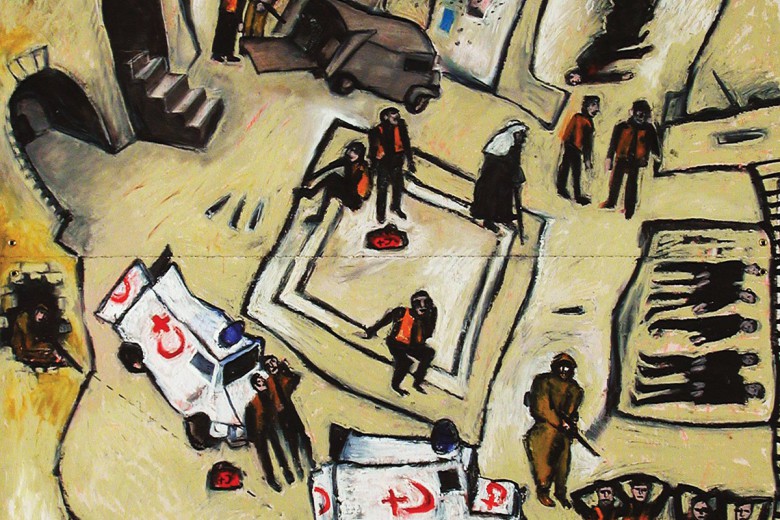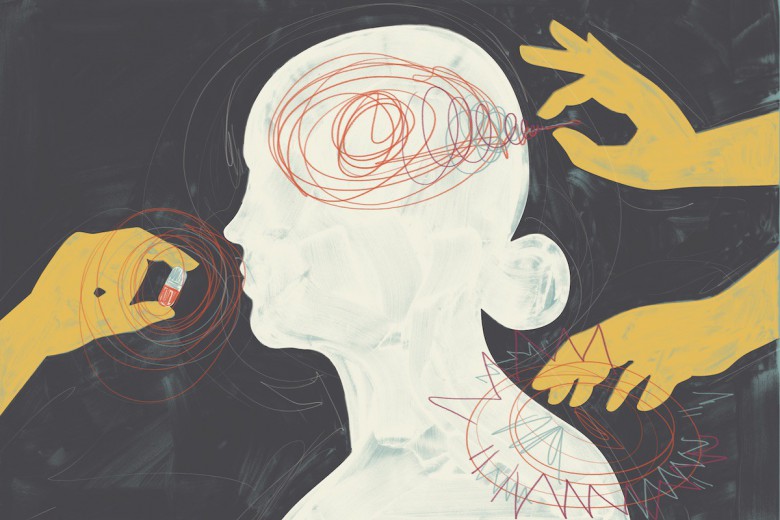“It is crazy-making to have to witness horror upon horror – mounting dread, contact lost with friends and family, pangs of sorrow punctuated by rage – and to maintain calm and steady work. We hold this all to be true, and welcome the tensions, for our movements have always been populated by the crazy and the alive.”
Palestinian Youth Movement organizers write these words two months into the current, totalizing wave of genocide. Crazy and alive, meaning: there is nothing exceptional about madness in a world where a massacre and a Super Bowl are broadcast side by side. To be crazy is to refuse a reality in which such grotesque brutality is normalized. To stay alive to injustice is to insist on a wounding, a breaking open. Madness belongs to the people. Not to those who mobilize psychosis as an excuse for the genocidal logics of imperialism and settler colonialism, which function exactly as they were meant to.
On January 22, 2024, I facilitate a workshop called “Crazy and Alive: Transforming Crip Grief into Cross-Movement Solidarity.” How are you arriving? I ask. How connected are you feeling to grief? The answers come through, one by one: I am tired and numb. I am a tide dammed up. I am filled with grief and anger. Grief and anger that is not just of this moment, but an ongoing story: 76 years of genocide against the Palestinian people; mass death and disablement in a global pandemic; centuries of colonization and enslavement across the Americas and Asia and Africa. A eugenic project, the Western imperial project, carried out by missile and by metaphor.
You are who I love, carrying the signs, packing the lunches, with the rain on your face. – Aracelis Girmay
I read these lines at the end of the workshop, after we compose our own collective poem: a litany of what-ifs. What if we won? There is space, in the poem, for our dreams to diverge, and there is space for our dreams to touch. I call on poetry whenever I speak or think about madness because, to live in madness, to live with madness, I have had to inhabit a lyric mode – expansively fallible, non-linear, and associative. Robin D.G. Kelley writes of poetic knowledge as a form of revolt: “a scream in the night, an emancipation of language and old ways of thinking.” As a strategic orientation to movement building, madness (poetry) leads us to creativity, coalition, intimacy, disruption. For example: on Valentine’s Day, health-care workers project messages of Palestinian solidarity near the Israeli consulate. For example: dancing and dinner with unhoused neighbours in front of city hall, protesting a budget proposal to further increase Toronto police funding. As a mode of expression, poetry (madness) offers us a discursive register – in the words of Bahar Orang, “to demonstrate what exists and can exist beyond the colonizer, the occupier, and the liberal’s projection of reality.”
each of us looking out from the gorgeous unlikelihood of our lives at all, finding ourselves here, witnesses to each other’s tenderness, which, this moment, is fury, is rage – Girmay
Crips teach me that our grief, like our bodies, does not take one singular form. Rage, sorrow, exhaustion, numbness, disconnection, possibility, fury, fury, fury. Ceremonies outside of police headquarters for missing and murdered Indigenous women, girls, trans and Two-Spirit people. Collective readings and vigils in memory of martyred poets and journalists like Refaat Alareer and Hamza Al Dahdouh, language overflowing from classrooms and bookstores and sidewalks. Day after day, week after week. Materializing grief as a space of practice for revolutionary possibility.
Such commitments to cross-movement solidarity have always been foundational to principles of disability justice. As Sins Invalid writes, “Shifting how social justice movements understand disability and contextualize ableism, disability justice lends itself to politics of alliance.”
So, too, the work of care, the discipline and devotion of care, in crazy-making times, often falls on queer, trans, racialized, and disabled communities: checking in on each other, creating banners and posters, distributing masks and medical supplies, cooking food, calling prisoners, composing safety plans, organizing vigils and grief circles. I do not want to romanticize or exceptionalize narratives of disabled resilience, productivity, overcoming. These skills come from an intimate knowledge of grief, of living within multiple systems designed for our annihilation – but I do want to invoke this work, to situate myself in these lineages.
You are who I love, writing letters, calling the senators, you who, with the seconds of your body (with your time here) – Girmay
Body as instrument. Time as tactic. Poetry (madness) teaches me to stay in the subjunctive mode: how might we harness the power of our collective feeling? How might we hold grief in one hand and possibility in the other, so that we are always turning toward a different world? Crip grief means we need each other, in ways the colonial state cannot even imagine. From Palestine to Atlanta, from Hong Kong to Sudan, from so-called Canada to Kashmir. Crip grief breaks me open, and into this breach, I pour my dreaming:
What if we allow our Mad selves, our grieving selves, our whole selves to exist in spaces of shared struggle? What if all our what-ifs could be? We, we, we. Madness (poetry) reminds me of my plurality, of how my life is tied, exquisitely and inextricably, to yours.
You at the edges and shores, in the rooms of quiet, in the rooms of shouting, in the airport terminal, at the bus depot saying “No!” […] You are who I love You and you and you are who – Girmay
Refusal, too, is an act of love. And so the poem opens as it ends. Extends a line, a tenderness, a path. How it is only together that we might rupture from state-sanctioned sanity, from our place as gears in the capitalist death machine, which tries and tries to pathologize and dehumanize dissent. To return to the long labour of making material a different world. This work of aliveness. This work of grief.







